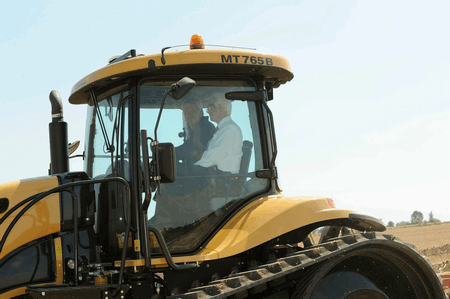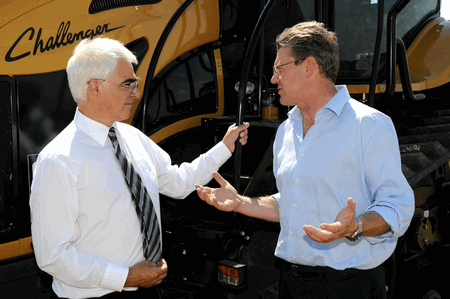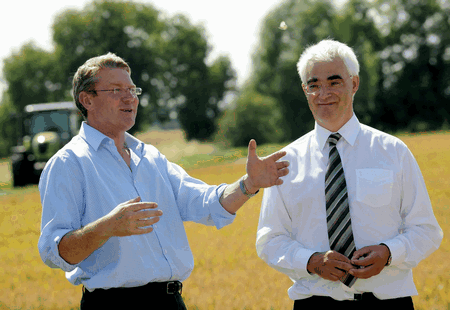Chancellor Alistair Darling voices his support for productive agriculture

The Chancellor of the Exchequer Alistair Darling yesterday (24 July) visited NFU president Peter Kendall’s farm in east Bedfordshire to learn first-hand about the importance of productive agriculture in the UK.
The Chancellor was given a tour of the farm by Mr Kendall and even spent time on board one of the farm’s self-steer tractors.

“I see the farming industry as a huge asset to this country,” Mr Darling said afterwards. “The industry has been through huge changes in the past few years and today faces more challenges with the rising cost of production, but I believe the industry can deal with it.”
He highlighted the importance of the CAP health check in further decoupling support to allow farmers to become more market orientated. “The incentive should be on farmers to produce as much as the market can absorb. Reducing tariffs is a necessary part of this reform, in agriculture, and many other industries. But we’ve got to make sure our industry is still supported, so that’s why we talk about reforming the CAP, not scrapping it.”

With the issue of food security higher on the political agenda, he even suggested that a separate Public Service Agreement (PSA) target for productive agriculture might be considered at the next government spending review.
But Mr Darling also said the rising cost of food and the inflationary pressure that brought had to be addressed. “We want to ensure that consumers don’t pay any more for food than they have to.”

That concerned Mr Kendall. “I don’t think there will be more production at lower prices. What has caused these recent higher prices is years and years of low prices and lack of investment in agriculture.
“I hope Mr Darling has picked up from this visit that agriculture is an exciting industry and can play a really positive part in the future. It’s a real sign of the times that in just a few years we’ve gone from politicians talking about farmers being park keepers, to Alistair Darling sat here talking about the need for productive agriculture.”
